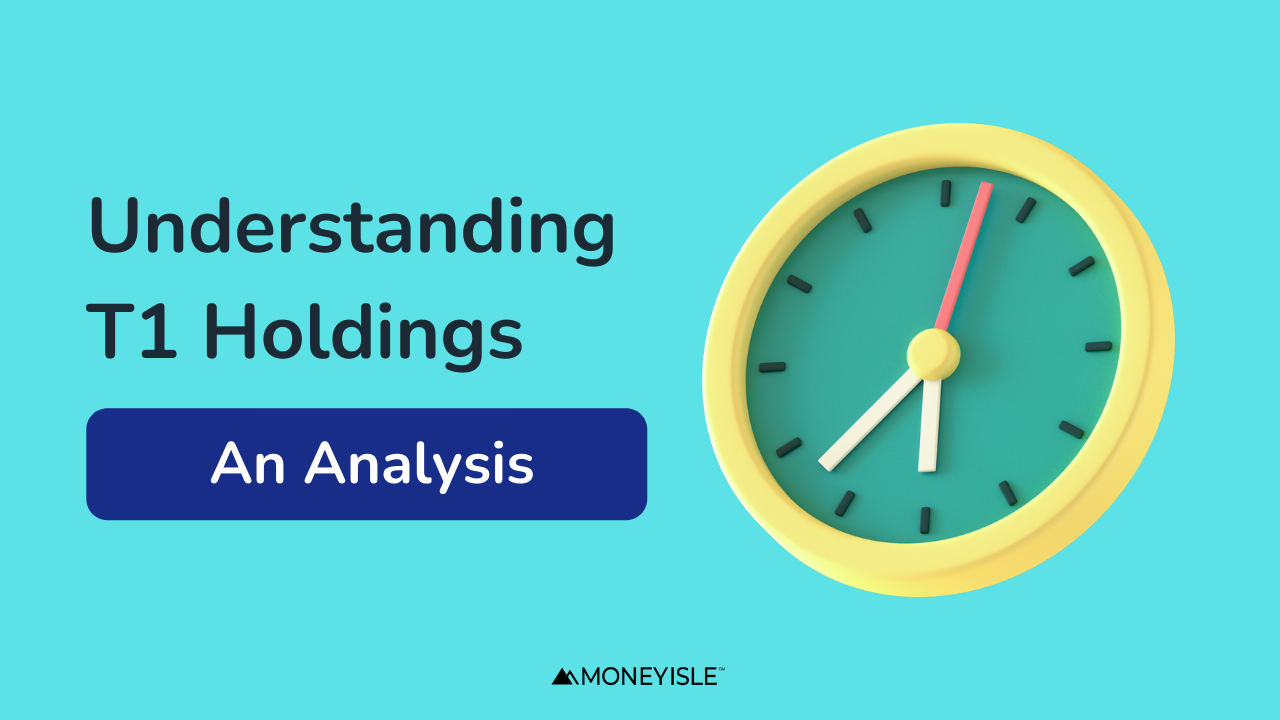T1 holdings are practically the shared summary of the shares that you have bought but haven’t yet been transferred into your Demat account.
This being said, in India, we have a settlement cycle that works on the T+2 settlement. This implies that when you buy your shares on T day, you don’t receive them instantly into your Demat account. Rather, you will have to wait until T+2 evening for those shares to be credited into your account.
Therefore this limits your ability to lay claim on the stock that you have bought. Unless and until it is credited into your Demat account, you can’t claim it. Also if you try selling the stock in this period then you will have a high risk of short delivery and/or shortage.
Should I sell my T1 holdings?
T1 holdings, also often known as unsettled holdings are the ones that you have already bought but can not lay claim to as they are yet to be transferred into your Demat account.
This occurs due to the number of transactions going on, on the exchanges and therefore your purchases need time till T+2 to get settled.
It is not a good decision to sell your shares while they are a T1 holding. This is because your sold T1 holding may carry the risk of getting auctioned.
Here’s an example to help you understand.
Let’s say that the buyer bought the shares on Monday. Then the delivery of the shares to the Demat account of the buyer will happen on Wednesday of the same week. In most circumstances, the customer will get his holdings in his Demat account on Wednesday. The client must offer delivery first then receive it, according to the SEBI regulation.
As a result, on Thursday at pay in, the customer will be unable to deliver the shares, and his shares will be auctioned, with the client being responsible for the auction penalty. This only happens when the investor decides to sell off his shares while they are a T1 holding. Therefore, it is not advisable to sell your T1 holdings before they are delivered to your Demat account and claim them.
What are the new changes regarding T1 holdings from SEBI?
Sebi intends to change the settlement schedule to T+1 which is currently T+2.
If a prospective investor proceeds to buy shares of any company today on the BSE or NSE, the shares will be transferred to the Demat account in T+2 days. After that, he can either sell or keep his stock. The person selling the shares, on the other hand, will get funds credited into his account within 48 hours of the transaction. This settlement is now planned to take place in T+1 days.
The interval between the date of purchase of shares by an investor and the day the shares are actually settled and credited into the purchaser’s account is referred to as the settlement cycle in stock markets. From January 2022, SEBI has given exchanges the option of adopting T+1 settlement schedule in a phased manner depending on their preparedness. According to the Sebi circular, if the exchange intends to use the T+2 settling cycle in the interim, it must give one month’s notice.
SEBI has proposed changing the transaction settlement cycle to T+1, which implies stocks will now be delivered in T+24 hours, in response to market players’ requests. SEBI made this decision after consulting with market infrastructure organisations including Stock Exchanges, Clearing Firms, and Depositories.
Decreasing the settlement cycle will improve market efficiency and safeguard investors’ interests even more. This will also help assist broker-dealers to minimize operational risk, liquidity demands, and counterparty risk, as well as margin and collateral requirements.
What do these changes mean for different types of investors?
Large volume investors, such as Corporations, FIIs, and DIIs, will benefit greatly from this change. They can get additional liquidity and minimize margin requirements by settling one day sooner.
While it will have little influence on T+1 day settlement for small or individual investors. However, it is worth noting that retail individual investors account for 45 percent of daily trading activity on exchanges, while companies, FIIs, DIIs, Proprietary traders, and others account for the remaining 55 percent.
For nominal common investors, It will allow them to receive their funds sooner after transaction execution and settlement. Many operational and strategic risks can also be reduced. Shifting to a T+1 settlement cycle is indeed a difficult task that will need extensive planning, implementation, and testing, as well as a fundamental shift in market structure.
It is believed that by upgrading infrastructure with strong technology and streamlining the settlement process, the chances of technical malfunctions may be reduced. The market’s volatility will undoubtedly arise, and investors must keep a watchful check on their new investments. T+2 trade settlement is now used by the majority of stock exchanges in industrialized nations such as the United States, the United Kingdom, and Japan. This structure will be complicated, but decreasing the settlement cycle will result in higher operational efficiency and reduced capital costs. This change in settlement schedules is being adopted by a number of countries across the world. This may lead to an increased volatility in the market in the upcoming months. This may also trigger a mass adoption of such a change across various other countries which may lead to heavier consequences in the market.
Conclusion
The share market has tons of transactions taking place concurrently on a daily basis. This calls for a system of cyclic settlement of transactions over a period of time.
Therefore, when someone purchases shares on any given day, the shares are not directly credited to their Demat account and are referred to as the T1 holdings.
These are then credited before the end of the T+2 cycle. Recently the SEBI has been talking about bringing a change from the T+2 settlement cycle to a T+1 settlement cycle.
This will surely bring a lot of changes to the system. Make sure you understand the consequences of your moves properly before you dive into the stock market.











